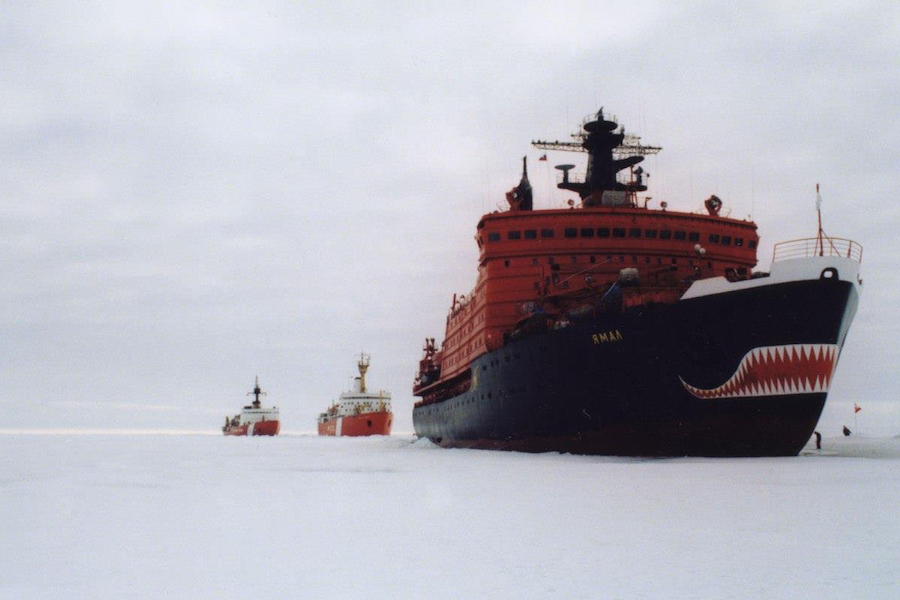
Rosatom as a Tactic in Russia’s Foreign Policy
U.S. President Donald Trump’s recent harsh criticism of Germany and overall European dependence on Russian natural gas have once returned global attention to EU energy security. However, despite the U.S. administration, Brussels, Poland, and Baltic states’ ardent opposition, Russia has not only continued to supply record amount of coal, oil and gas to the global markets, but has also identified new energy export options, particularly nuclear power generation. Encouraged by tactical victories of her intensified energy diplomacy efforts in oil and gas, Russian leadership has embarked on active nuclear power diplomacy globally.
Emulating his success in oil and gas sector, Vladimir Putin has consolidated the nuclear industry of Russia in a single state-owned company, Rosatom. Founded in 2007, Rosatom is a vertically integrate state-owned company with 360 subsidiaries engaged in activities that cover civil nuclear electricity generation, nuclear weapon industry, and nuclear icebreakers. The company tasked to transform nuclear power into a major export industry in Russia in order to reap maximum profit from energy exports, and to deploy the nuclear power as another political mean to achieve his geopolitical ends. As a result, Rosatom has now become the second largest nuclear power company in the world in terms of installed nuclear capacity and number of nuclear units in operation. The company operates in 40 countries and its portfolio of overseas projects for next decade exceeds $133 billion, although most of them are framework agreements. Nevertheless, Rosatom already holds 17% of market share for the nuclear fuel fabrication while every 6th reactor in the world is operating with Russian nuclear fuel.
Besides its traditional customers in Asian market, namely, China and India, Rosatom has recently been actively expanding its presence in European states where the USSR had built nuclear facilities. In Europe Rosatom is active, engaging in the bidding process for the Belene nuclear power project in Bulgaria, construction of new reactors in Paks nuclear power plant in Hungary built by the USSR in 1980s, and expecting a construction license from the regulators to build the Fennovoima nuclear power plant in Finland. Rosatom also has the dominant position in the Czech nuclear sector and supplying fuel to other plants built by Soviet technologies.
Besides continuing cultivating relations with its traditional buyers in Europe and Asia, Rosatom has followed Russian oil and gas companies’ footsteps in tapping into lucrative Middle Eastern power market. Having already sealed deals with Turkey and Iran for construction of nuclear power plants, Akkuyu and Bushehr 2 respectively, Rosatom has now taken a pivot to the Arab Gulf states.
As fossil fuels account for almost all of current electricity production in the Middle East, major Middle Eastern oil and gas exporters are increasingly interested in boosting their nuclear capacity in order to strengthen their economic and energy security given the recent volatilities in oil and gas prices. Due its rapid economic and population growth Middle East is expected to increase its nuclear capacity fivefold by 2028 considering already signed new nuclear project contracts between Middle Eastern states and vendors.
In the Middle East, Rosatom has been engaged in bidding for nuclear power projects and in concluding long-term fuel supply agreements. In Jordan, Rosatom has conducted nuclear feasibility studies to install 2 GW facility. In the United Arab Emirates (UAE), Russian nuclear giant has signed a fuel supply agreement to supply nuclear fuel to Barakah nuclear plant constructed by Korean Kepco. The (UAE) is so far the only nuclear power state in the Gulf, and a leader for near-term nuclear power growth rate in the region, but it is not the only target for Russian nuclear energy diplomacy.
Saudi Arabia is set to spend almost $80 billion to add 17 GW nuclear power by 2040. The Kingdom is expected to decide on its first nuclear facility by the end of this year and Rosatom is among the shortlisted companies to bid for the construction of two nuclear power plants in the Kingdom, each with a capacity of 2.8. Although the Russian state-owned nuclear company faces fierce competition from Japanese, South Korean, Chinese, and American companies, Rosatom has decent chances to secure the contract.
In 2017, Russia and Saudi Arabia signed a roadmap agreement for the implementation of the Program for the Cooperation on Peaceful Use of Atomic Energy. Undoubtedly, Rosatom is relying on Russian state support to win the bidding process given the recent rapprochement between Moscow and Riyadh. Along with the first-ever visit of a Saudi ruler to Russia in 2017 and follow-up partnership deals signed between the Kremlin and the Kingdom that range from arm sales to oil and gas investments, Russia and Saudi Arabia have been successfully cooperating within the ROPEC deal aimed at stabilizing global oil prices. If successful, Rosatom’s presence in the Kingdom will serve to solidify political and economic ties between two countries and to augment the reliance of the United States’ traditional Gulf ally on Russia.
In Europe, Russia is determined to fully exploit her nuclear power to maximize the revenues gained from energy exports and, where possible, to utilize nuclear power to achieve her political gains as Moscow has tried in several occasions in respect to Ukraine and other East European states. While the EU and individual states are conveying efforts to enhance the energy security of the continent which remains largely dependent on Russian gas supplies, Russia is offering her nuclear potential as another element of “state-supported commercial package deals” to important gas transit states such as Hungary and Bulgaria. Moscw’s goal is to undermine the unity of the continent with respect to Russian gas supplies and to increase the Europe’s energy dependency on Moscow.
In Middle East, Russia’s goal is to fully exploit a nascent yet potentially lucrative nuclear power market. Taking advantage of current political disunity in the Gulf region, most illustrated by the 14-month-old Qatar crisis, Russia has concluded nuclear power agreements with Saudi Arabia, the UAE, and Qatar. Thanks to the state-support the Russian nuclear company can offer attractive “Build, Own, Operate” (BOO) deals with financing opportunities in order to overcome the European and Asian competition, as well as America with the 123 agreements. Rosatom is also expected to be successful in the Gulf by using this formula, as the oil-rich Arab Gulf sheikdoms do not yet have their own nuclear sector and trained staff.
Overall, Russia has already been successful in putting pragmatic energy policies above political differences, building economic ties with its energy rivals in the region, and working with international cartels such as OPEC. Russia has tried to use its energy diplomacy in in the Middle East and North Africa, both to bring the region closer to Moscow’s orbit of influence and to drive a wedge between the United States and its traditional allies, especially in the Arabian Peninsula. Looking ahead, the civil nuclear power generation will almost inevitably become another tool for Russia’s 21st century energy diplomacy.


